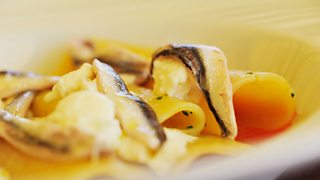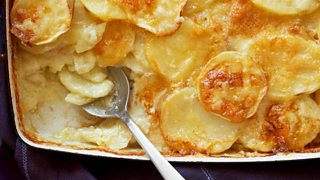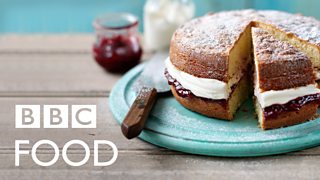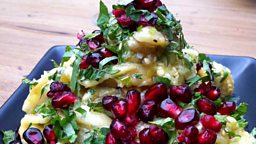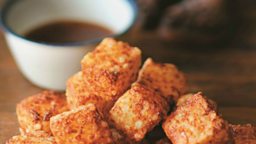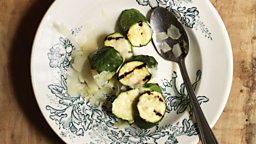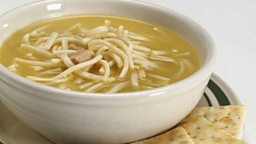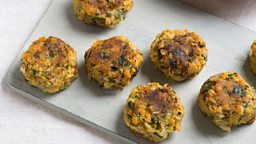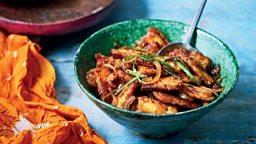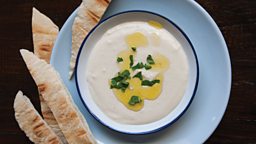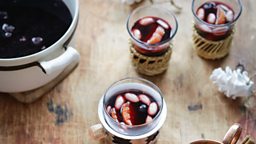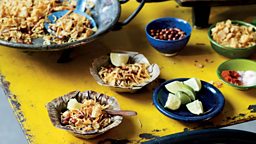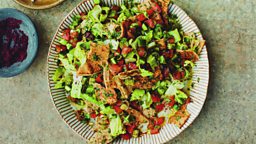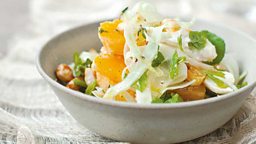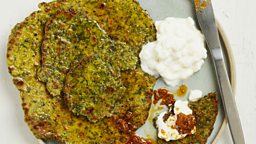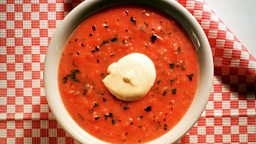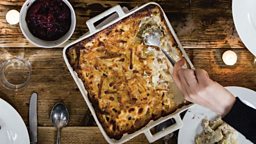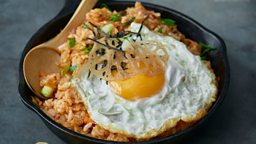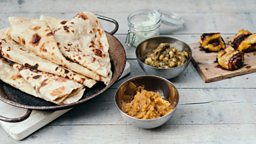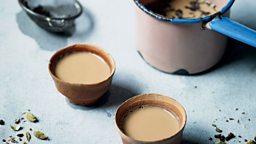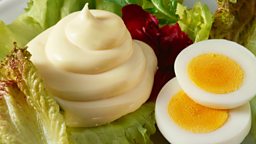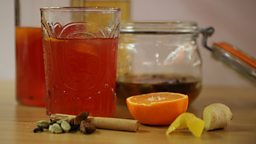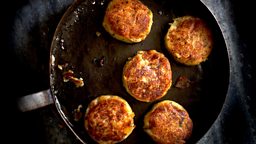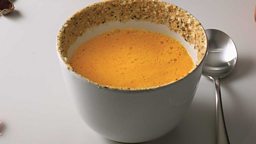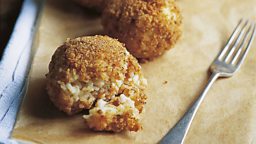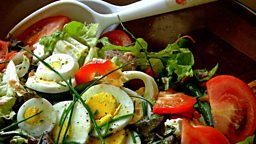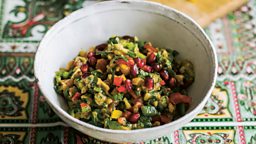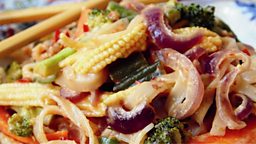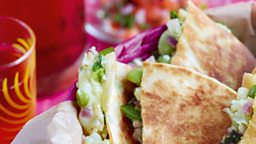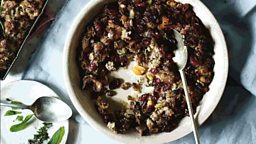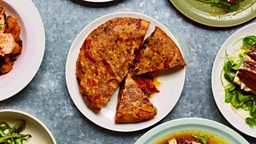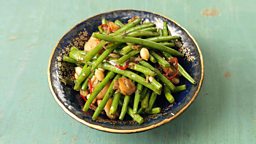Flatbread and Crackers
Niki Segnit’s new book, Lateral Cooking explains how recipes are related to each other through a shared culinary DNA and explores how with just a tweak of an ingredient or technique, one dish leads to another.
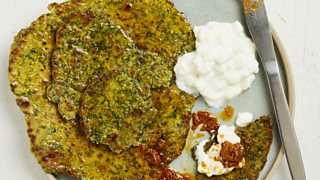
Subscribe to the Cook the Perfect podcast
Flatbreads & Crackers
A versatile starting point that can be used to make a dough for all sorts of flatbreads, including chapatis and tortillas. Make a few batches, and you’ll see why people in India and Mexico bother to make their own. Don’t feel restricted to their cuisine of origin. Fresh flatbreads are excellent with thick soups, bean stews and for quesadilla-style sandwiches. The same dough can be boiled to make noodles (see buckwheat, page 30) and baked for crackers.
For 8 × 17 cm round flatbreads, or 16 × 9 cm round crackers
INGREDIENTS
250g flour
1 tsp salt
150 ml warm water
1– 2 tbsp fat – optional
1 Sift the flour and salt into a bowl, make a well in the centre and add the warm water. Mix to a dough using a spoon, your hand or both. Add a little more flour or water as necessary to create a soft dough that’s not too sticky.
The water needs to be warm to make the dough more sticky and cohesive. For a richer, more supple dough, 1– 2 tbsp oil, melted butter or lard can be added to the water. Or rub solid fat into the flour until it’s all but vanished, then add the water.
2 Knead the dough for 1– 2 minutes until smooth.
3 Cover the kneaded dough with a clean tea towel and let it rest for 30 minutes. If making crackers, wrap in cling film and leave in the fridge for 30 minutes to firm up, so the dough can be rolled and cut into defined shapes.
FOR FLATBREADS
Divide the dough into 8 evenly sized pieces, then roll into balls. With a rolling pin, roll each ball out to a rough circle, about 2 – 3 mm thick. Cook the breads on a hot, unoiled frying pan or flat-surfaced griddle until brown and spotted on one side. Then flip and aim for the same on the other. Keep the cooked breads wrapped up warm while you finish the rest.
You can use flour when rolling out, but this can make the bread a bit dry. A lightly oiled surface is preferable. Turn the circle like a steering wheel every now and then, and flip it a couple of times too. Keep any unused dough covered to prevent it drying out. To optimise the cooked bread’s flavour, you might brush it with a little melted butter or ghee while still hot, and give it a modest sprinkle of salt. The bread is best eaten soon after it’s cooked. Raw dough can be stored in the fridge for a few days.
VARIATION (AS SEEN IN PIC): CHICKPEA, SPINACH & NIGELLA
Missi roti is an unleavened flatbread popular in Rajasthan and the Punjab that combines chickpea and wholemeal flours, and usually something green for flavouring – maybe some spinach, coriander leaves or spring onions, or all three. Pomegranate or ajwain seeds (a thyme-flavoured aromatic native to India and Pakistan) provide an optional sharp or bitter dimension. Ajwain seeds are sometimes labelled lovage on their Indian packaging, but be prepared for them to taste of thyme, with hints of anise and oregano, rather than the distinct celery flavour of European lovage. I like my missi roti with spinach and nigella seeds. The cooked rounds of bread are so fibrous you’d think they were woven rather than kneaded. Use 50/50 chickpea flour and wholemeal flour, then mix with the salt and 2 handfuls of frozen chopped spinach, defrosted and squeezed, and 1 tsp nigella seeds. Bring the dough together using warm water as per the method for flatbreads, but hold some back, as the spinach will yield its own moisture. Cook on a hot non-stick frying pan (or tawa) until, turning and brushing with ghee or butter once or twice. Brush the just-cooked bread with more ghee or butter and give it a little sprinkle of sea salt to maximise the flavours. Eat your missi roti while it’s still warm. I like mine with good-quality cottage cheese and a tickle of lime pickle.
More Food on the 91热爆
-
![]()
Browse our selection of recipes from top chefs, cooks and food writers who have joined us on Woman's Hour...
-
![]()
Download this interview, or subscribe to the Cook the Perfect...downloads
-
![]()
Browse over 13,000 recipes on the 91热爆 Food website
